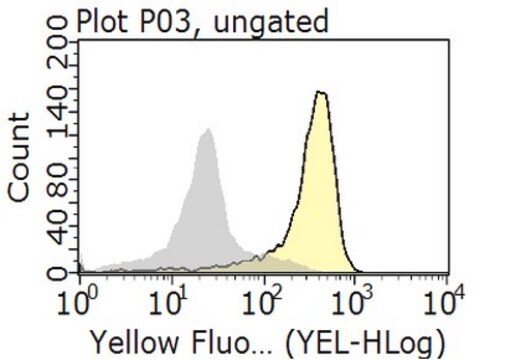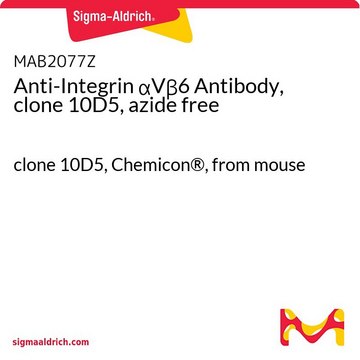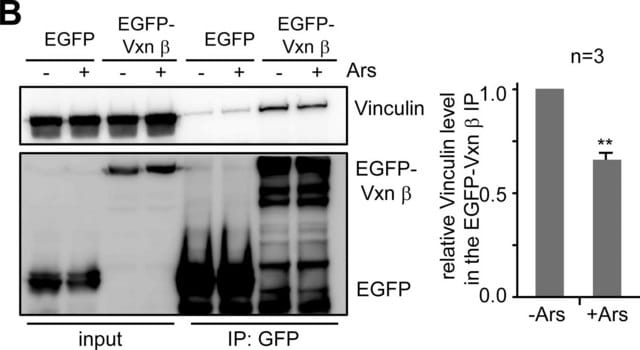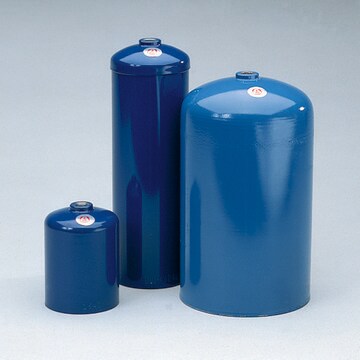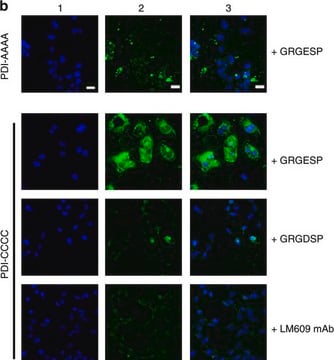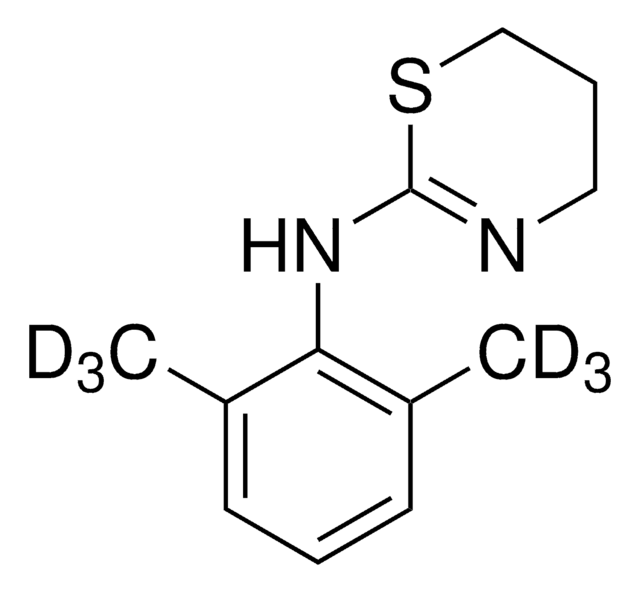CBL1346Z-I
Anti-mouse Integrin alphaV Antibody, clone RMV-7 (Preservative free)
clone RMV-7, from rat
Synonym(s):
Integrin alpha-V, Vitronectin receptor subunit alpha, CD51, 1.Integrin alpha-V heavy chain2.Integrin alpha-V light chain, Integrin alphaV
About This Item
Recommended Products
biological source
rat
Quality Level
antibody form
purified immunoglobulin
antibody product type
primary antibodies
clone
RMV-7, monoclonal
species reactivity
mouse
technique(s)
flow cytometry: suitable
immunoprecipitation (IP): suitable
western blot: suitable
isotype
IgG1κ
NCBI accession no.
UniProt accession no.
shipped in
dry ice
target post-translational modification
unmodified
Gene Information
mouse ... Itgav(16410)
General description
Specificity
Immunogen
Application
Immunoprecipitation Analysis: A representative lot was used by an independent laboratory in LAK cell lysate. (Takahashi, K. et al., (1990). J. Immunol. 145:4371.)
Blocking Assay: Adhesion and LAK cell cytotoxicity was shown using a representative lot (Takahashi, K. et al., (1990). J. Immunol. 145:4371.)
Quality
Flow Cytometry Analysis: 0.2 µg of this antibody detected Integrin alphaV in murine 3T3-L1 cells .
Target description
Linkage
Physical form
Analysis Note
Murine 3T3-L1 cells
Other Notes
Not finding the right product?
Try our Product Selector Tool.
Storage Class Code
12 - Non Combustible Liquids
WGK
WGK 2
Flash Point(F)
Not applicable
Flash Point(C)
Not applicable
Certificates of Analysis (COA)
Search for Certificates of Analysis (COA) by entering the products Lot/Batch Number. Lot and Batch Numbers can be found on a product’s label following the words ‘Lot’ or ‘Batch’.
Already Own This Product?
Find documentation for the products that you have recently purchased in the Document Library.
Our team of scientists has experience in all areas of research including Life Science, Material Science, Chemical Synthesis, Chromatography, Analytical and many others.
Contact Technical Service


